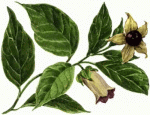Botany
|
16 april 2014 23:05:29 |
| A nuclear-encoded chloroplast protein harboring a single CRM domain plays an important role in the Arabidopsis growth and stress response (BMC Plant Biology) |
|
Tweet Background:
Although several chloroplast RNA splicing and ribosome maturation (CRM) domain-containing proteins have been characterized for intron splicing and rRNA processing during chloroplast gene expression, the functional role of a majority of CRM domain proteins in plant growth and development as well as chloroplast RNA metabolism remains largely unknown. Here, we characterized the developmental and stress response roles of a nuclear-encoded chloroplast protein harboring a single CRM domain (At4g39040), designated CFM4, in Arabidopsis thaliana.
Results:
Analysis of CFM4-GFP fusion proteins revealed that CFM4 is localized to chloroplasts. The loss-of-function T-DNA insertion mutants for CFM4 (cfm4) displayed retarded growth and delayed senescence, suggesting that CFM4 plays a role in growth and development of plants under normal growth conditions. In addition, cfm4 mutants showed retarded seed germination and seedling growth under stress conditions. No alteration in the splicing patterns of intron-containing chloroplast genes was observed in the mutant plants, but the processing of 16S and 4.5S rRNAs was abnormal in the mutant plants. Importantly, CFM4 was determined to possess RNA chaperone activity.
Conclusions:
These results suggest that the chloroplast-targeted CFM4, one of two Arabidopsis genes encoding a single CRM domain-containing protein, harbors RNA chaperone activity and plays a role in the Arabidopsis growth and stress response by affecting rRNA processing in chloroplasts |
| 88 viewsCategory: Botany |
 ARACNe-based inference, using curated microarray data, of Arabidopsis thaliana root transcriptional regulatory networks (BMC Plant Biology) ARACNe-based inference, using curated microarray data, of Arabidopsis thaliana root transcriptional regulatory networks (BMC Plant Biology)A deep survey of alternative splicing in grape reveals changes in the splicing machinery related to tissue, stress condition and genotype (BMC Plant Biology) 
|
| blog comments powered by Disqus |
MyJournals.org
The latest issues of all your favorite science journals on one page
The latest issues of all your favorite science journals on one page



